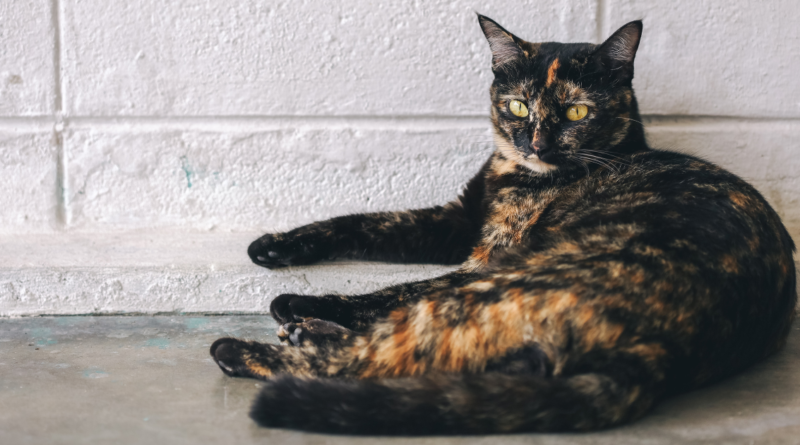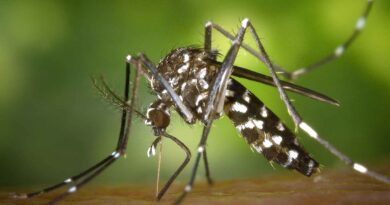Tortoiseshell Cat Health Problems
Introduction to Tortoiseshell Cats
Tortoiseshell cats are known for their beautiful coat patterns, which consist of a mix of black, orange, and sometimes white fur. These unique felines are not a specific breed but rather a coat pattern that can be found in various breeds, such as the American Shorthair, British Shorthair, and Maine Coon. Tortoiseshell cats are often called “torties” or “tortoiseshells” for short.
Common Health Problems in Tortoiseshell Cats
Like any other cat, tortoiseshell cats can experience various health problems throughout their lives. Cat owners must be aware of these common health issues to provide the necessary care and seek veterinary attention when needed.
Urinary Tract Issue
One of the common health problems in tortoiseshell cats is urinary tract issues. These cats are prone to developing urinary tract infections, bladder stones, and urinary blockages. Symptoms of urinary tract problems in tortoiseshell cats may include frequent urination, difficulty urinating, blood in the urine, and urinating outside the litter box.
Dental Disease
Another health concern for tortoiseshell cats is dental disease. Poor dental hygiene can lead to periodontal disease, which can cause pain, tooth loss, and even systemic infections if left untreated. Regular dental care, including brushing their teeth and providing them with dental treats or toys, can help prevent dental problems in tortoiseshell cats.
Skin Problems
Tortoiseshell cats are also more susceptible to certain skin conditions, such as allergies and dermatitis. These cats may develop itchy skin, hair loss, redness, and sores. “Environmental factors can serve as triggers for allergies.” like pollen or certain ingredients in their food. Identifying and eliminating the allergen or providing appropriate treatment can help alleviate the symptoms.
Understanding the Genetics of Tortoiseshell Cats and Its Impact on Their Health
To understand the health problems tortoiseshell cats may face, it’s essential to delve into their unique genetics.”Tortoiseshell coat patterns are the result of a specific gene.” known as the “orange gene” or the “O gene.” This gene is carried on the X chromosome, determining the distribution of black and orange pigments in the cat’s fur.
Female tortoiseshell cats have two X chromosomes, while males have one X and Y chromosomes. Due to this genetic makeup, male tortoiseshell cats are extremely rare, as they must inherit an extra X chromosome. The presence of two X chromosomes in female tortoiseshell cats can also lead to genetic abnormalities, such as reproductive issues and a higher predisposition to specific health problems.
Preventive Care for Tortoiseshell Cats
Preventive care plays a crucial role in maintaining tortoiseshell cats’ overall health and well-being. By implementing a few simple measures, you can help prevent the onset of common health problems and ensure your tortie leads a happy and healthy life.
Providing a balanced and nutritious diet
First and foremost, providing a balanced and nutritious diet is essential for the overall health of your tortoiseshell cat. Choose high-quality cat food appropriate for their age and specific dietary needs. Consult your veterinarian for recommendations on the best diet for your feline friend.
Regular exercise
Regular exercise is also essential for maintaining a healthy weight and preventing obesity-related health issues. Engage your tortoiseshell cat in playtime activities encouraging them to jump, run, and climb. This helps them burn calories and keeps their muscles toned and joints flexible.
Good dental hygiene
Maintaining good dental hygiene is crucial for preventing dental disease in tortoiseshell cats. Make it a habit to brush your cat’s teeth regularly using a toothbrush and cat-friendly toothpaste. Additionally, providing dental treats or toys can help keep their teeth clean and reduce the formation of plaque and tartar.
How to Keep Your Tortie Healthy
In addition to preventive care, you can take several other measures to keep your tortoiseshell cat healthy and happy. Regular grooming is essential to keep their coat clean and free from tangles or mats. Brush their fur gently to remove loose hair and prevent hairballs.
Creating a safe and stimulating environment for your tortoiseshell cat is also important. Provide scratching posts and toys to keep them mentally and physically stimulated. Ensure they have access to fresh water and a clean litter box.
Observing your tortoiseshell cat’s behavior is crucial in detecting potential health problems. Cats are masters at hiding signs of illness, so being attentive to changes in their behavior, appetite, or litter box habits can help you identify any issues early on. If you notice any abnormalities, consult your veterinarian for further evaluation.
Nutrition and Diet for Tortoiseshell Cats
Proper nutrition is the foundation of good health for tortoiseshell cats. A balanced diet that meets their nutritional needs is essential in preventing health problems and promoting overall well-being. Here are some key considerations when it comes to feeding your tortie:
Choose high-quality cat food
Look for cat food specifically formulated for adult cats or kittens, depending on their age. Ensure that the food is made from high-quality ingredients and meets the nutritional requirements set by reputable organizations, such as the Association of American Feed Control Officials (AAFCO).
Provide a variety of proteins
Cats are obligate carnivores and require a diet rich in animal protein. Offer a variety of protein sources, such as chicken, turkey, fish, and beef, to ensure they receive all the essential amino acids.
Monitor portion sizes
Overfeeding can lead to obesity, a significant health concern for tortoiseshell cats. Follow the feeding guidelines provided on the cat food packaging and adjust portion sizes based on your cat’s activity level and body condition.
Consider special dietary needs
Some tortoiseshell cats may have specific needs due to allergies, sensitivities, or underlying health conditions. Consult with your veterinarian if you suspect your cat requires a specialized diet.
Provide fresh water
Ensure your tortoiseshell cat has access to clean and fresh water. Cats have a low thirst drive, so multiple water sources throughout the house can encourage adequate hydration.
Remember, every cat is unique, and their nutritional needs may vary. Consult your veterinarian to determine your tortoiseshell cat’s best diet and feeding routine.
Common Behavioral Issues in Tortoiseshell Cats and Their Relation to Health Problems
Tortoiseshell cats are known for their strong personalities and unique behaviors. While these traits can make them endearing companions, they can also lead to specific behavioral issues related to underlying health problems. Understanding these behaviors and their potential causes can help you effectively address health concerns.
Aggression
One common behavioral issue in tortoiseshell cats is aggression. Female torties, in particular, may exhibit aggressive behavior, especially when they feel threatened or anxious. It’s essential to identify the triggers that may be causing their aggression and provide a safe and calm environment to help alleviate their stress. If the aggression persists or becomes severe, consult a professional animal behaviorist for guidance.
Licking
Excessive grooming or licking is another behavioral issue that may indicate an underlying health problem. While cats are naturally clean animals, excessive grooming can lead to hair loss and skin irritation. It can also indicate allergies, parasites, or underlying medical conditions. If you notice your tortoiseshell cat excessively grooming themselves, consult your veterinarian to rule out any health issues.
Litter box problems
Litter box problems can also arise in tortoiseshell cats. They may start urinating or defecating outside the litter box, indicating urinary tract issues or stress. Ensure that the litter box is clean and easily accessible, and consider providing multiple litter boxes in different areas of your home. If the problem persists, consult your veterinarian to rule out any underlying health problems.
Regular Veterinary Check-ups and Vaccinations for Tortoiseshell Cats
Regular veterinary check-ups are essential to monitor the overall health of your tortoiseshell cat and detect any potential health problems early on. Your veterinarian will perform a thorough physical examination, check your cat’s vital signs, and may recommend additional diagnostic tests if necessary.
Vaccinations are another crucial aspect of preventive healthcare for tortoiseshell cats. Vaccinations help protect your cat from common infectious diseases, some of which can be life-threatening. Your veterinarian will create a vaccination schedule tailored to your cat’s specific needs based on their lifestyle and risk factors.
During veterinary check-ups, your veterinarian will also discuss parasite prevention, dental care, and other specific health concerns related to your tortoiseshell cat. Establishing a good rapport with your veterinarian and maintaining open communication is important to ensure the best care for your feline companion.
Home Remedies and Natural Treatments for Common Health Problems in Tortoiseshell Cats
While it’s essential to consult your veterinarian for any health concerns your tortoiseshell cat may have, some home remedies and natural treatments can help alleviate certain common health problems. It’s important to note that these remedies should not replace professional veterinary care but can be used as a complementary approach in some cases.
For urinary tract issues, increasing your cat’s water intake can help flush out the urinary system. Consider adding water fountains or providing wet food to encourage hydration. Cranberry supplements may also help support urinary tract health in some cats.
For dental health, regular brushing is the best preventive measure. However, if your cat is resistant to brushing, dental gels and water additives can help reduce plaque and tartar buildup. Dental treats and toys designed to promote chewing can help keep their teeth clean.
Natural remedies for skin conditions include soothing baths using oatmeal-based shampoos or aloe vera gel for the affected areas. However, it’s important to note that a veterinarian should evaluate severe or persistent skin conditions to determine the underlying cause and appropriate treatment.
When to Seek Professional Veterinary Help for Tortoiseshell Cats
While home remedies and natural treatments can be helpful in certain situations, it’s important to recognize when it’s time to seek professional veterinary help for your tortoiseshell cat. Some signs that indicate the need for immediate veterinary attention include:
- Difficulty breathing or rapid breathing
- Persistent vomiting or diarrhea
- Inability to urinate or defecate
- Lack of appetite or refusal to eat for more than 24 hours
- Lethargy or weakness
- Seizures or collapse
If you notice any of these signs or other concerning symptoms, contact your veterinarian immediately. Prompt veterinary care can make a significant difference in the outcome of your cat’s health.
Conclusion and Final Thoughts on Caring for Tortoiseshell Cats’ Health
Caring for the health of your tortoiseshell cat requires knowledge, attention, and a proactive approach. Understanding the common health problems they may face, implementing preventive care measures, providing a balanced diet, and seeking veterinary attention when needed can ensure your tortie leads a healthy and fulfilling life.
Remember, each tortoiseshell cat is unique, and their health needs may vary. Regular veterinary check-ups, open communication with your veterinarian, and an observant eye for any changes in behavior or health are key to providing the best care for your beloved tortie. With proper care and attention, your tortoiseshell cat can enjoy a long, happy, and healthy life by your side.





Pingback: Male Tortoiseshell Cat Health Problems - Lobster Techs
I loved you better than you would ever be able to express here. The picture is beautiful, and your wording is elegant; nonetheless, you read it in a short amount of time. I believe that you ought to give it another shot in the near future. If you make sure that this trek is safe, I will most likely try to do that again and again.
Hi my loved one I wish to say that this post is amazing nice written and include approximately all vital infos Id like to peer more posts like this